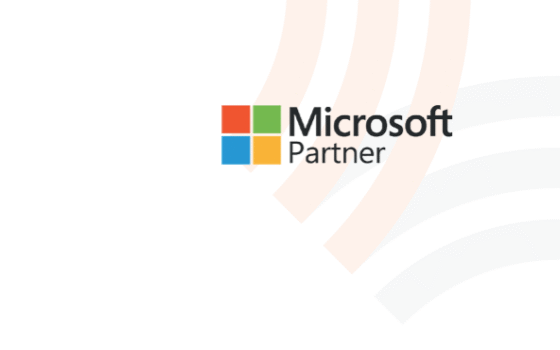
If you’ve ever wondered what exactly “EOL” means, you’re in the right place. EOL stands for End of Life, a term that carries significant weight in the IT industry. In simple terms, EOL refers to hardware or software becoming so outdated that its manufacturer no longer supports it.
Now, you might be asking, “Why should I care about EOL for my business?” That’s a valid question and one we’re here to address. Essentially, EOL can have profound implications for your business operations, posing risks to your critical data and processes. So, join us as we dive into EOL IT services, explaining its importance and shedding light on why organisations of all sizes must take it seriously.
- EOL Impact on Network Infrastructure
- The Role of a Firewall in Cyber Security
- Importance of Servers Remaining Within Support
- Proactive EOL IT Services Management
EOL Impact on Network Infrastructure
In the digital age, the role of firewalls in safeguarding your business cannot be overstated. Think of a firewall as the gatekeeper of your network, controlling the flow of traffic in and out. Its primary job? To keep out the bad and let in the good.
EOL Meaning
Now, imagine what happens when this gatekeeper is no longer up to standard when it’s past its prime and falls out of manufacturer support. That’s where the term “End of Life” (EOL) comes into play. When a firewall reaches EOL, the manufacturer no longer provides updates, patches, or technical support.
The Role of a Firewall in Cyber Security
So, why does this matter? Well, consider the ramifications: without ongoing support, your firewall becomes vulnerable to evolving cyber threats. It’s like having a rusty lock on your front door while burglars are armed with high-tech tools. Once protected by a robust firewall, your network is now exposed to potential breaches, data leaks, and other malicious attacks. Consequences of unprotected firewalls can include:
1. Loss of Patch Management:
Without manufacturer support, updates and patches for security vulnerabilities are no longer provided. Unpatched vulnerabilities create entry points for cyber threats, leaving your network exposed to attacks.
2. Lack of Bug Fixes:
Unsupported firewalls do not receive fixes for software glitches or errors (bugs). Unresolved bugs can lead to system instability, performance issues, and potential security vulnerabilities.
3. Absence of Hardware Warranty:
When a firewall reaches EOL, any existing hardware warranty expires. In the event of hardware failure, there’s no recourse for replacement or repair from the manufacturer, potentially resulting in costly downtime for your business.
4. Limited Technical Support:
Without manufacturer support, technical assistance for troubleshooting and resolving issues is severely restricted. IT providers may face challenges in addressing firewall-related issues effectively, leading to prolonged downtime and increased vulnerability to cyber threats.
Importance of Servers Remaining Within Support
Your server is the backbone of your network infrastructure, the central hub that orchestrates data flow and empowers your business operations. It’s the digital nerve centre where critical applications reside, files are stored, and communication and collaboration thrive. In essence, your server is the heart and soul of your IT ecosystem.
Now, imagine what happens when this vital component falls out of support, reaching its End of Life (EOL) status. The implications can be far-reaching and significant, posing risks to your business continuity and security.
1. Security Vulnerabilities:
Servers that are no longer supported by their manufacturer miss out on essential security updates and patches. Without these updates, your server becomes susceptible to cyber threats, leaving your business data and sensitive information at risk of compromise.
2. Software Incompatibility:
Newer applications and software are optimised to run on the latest operating systems. When your server is running on an outdated or EOL operating system, compatibility issues arise, hindering your ability to leverage new technologies and advancements in software capabilities.
3. Compliance Concerns:
Compliance with industry standards and regulations is paramount in regulated industries such as healthcare and finance. Operating servers on EOL software may lead to non-compliance with data protection regulations such as GDPR or PCI-DSS, exposing your business to potential fines, penalties, and reputational damage.
4. High Operating Costs:
Maintaining and supporting servers running on EOL software can incur significant expenses. The cost of patching outdated systems or dealing with system failures may outweigh the cost of investing in newer, supported hardware and software solutions.
5. Poor Performance and Reliability:
Ageing servers running on EOL software are prone to performance degradation and reliability issues. Downtime caused by server failures can disrupt business operations, leading to lost productivity and revenue.
Proactive EOL IT Services Management
When it comes to technology, change is constant. Hardware ages, software evolves, and cyber threats become increasingly sophisticated. In this landscape, the concept of End of Life (EOL) looms large, presenting both challenges and opportunities for businesses. While it may be tempting to adopt a reactive approach, addressing EOL issues as they arise, proactive EOL management offers a host of benefits that can safeguard your business and propel it forward.
By keeping hardware and software systems up-to-date with the latest patches and updates, businesses can fortify their cybersecurity defences, safeguard sensitive data, and minimise the risk of breaches.
Proactive EOL management enables businesses to optimise budget allocation, avoiding sudden expenses associated with emergency replacements or unplanned downtime. By forecasting and planning for EOL upgrades and replacements, organisations can allocate resources strategically, maximising the return on their IT investments.
Embracing proactive EOL management empowers businesses to future-proof their IT infrastructure, adopting scalable, flexible solutions that can adapt to evolving technology trends. In essence, proactive EOL management isn’t just about mitigating risks; it’s about positioning businesses for growth, resilience, and success in an ever-evolving digital landscape.
Secure Your Digital Future with Proactive EOL Management
Proactive management of End of Life (EOL) assets is essential for businesses aiming to navigate the complexities of the digital age with confidence and resilience. By prioritising proactive EOL management, organisations can fortify their cybersecurity defences, enhance operational efficiency, ensure regulatory compliance, and optimise their IT investments.
If you’re ready to take proactive steps to safeguard your business against EOL risks and bolster your cybersecurity, we’re here to help. Contact us today for expert guidance on EOL management and discover how our comprehensive cybersecurity services can protect your business in an ever-evolving threat landscape.
EOL IT Services FAQs
What does EOL stand for?
EOL stands for End of Life. In the context of IT services, it refers to the point at which hardware or software is no longer supported by its manufacturer.
How can I tell if my hardware or software has reached EOL?
Manufacturers typically announce EOL dates for their products, and they may provide notifications or documentation regarding the end of support. Additionally, your IT provider can help assess the status of your hardware and software and advise on EOL management strategies.
How can Odyssey help with EOL management and cybersecurity services?
Odyssey offers expert guidance on EOL management, including assessing the status of your hardware and software, developing proactive upgrade plans, and implementing robust cybersecurity solutions to protect your business from evolving threats. Contact us today for personalised assistance tailored to your business needs.



